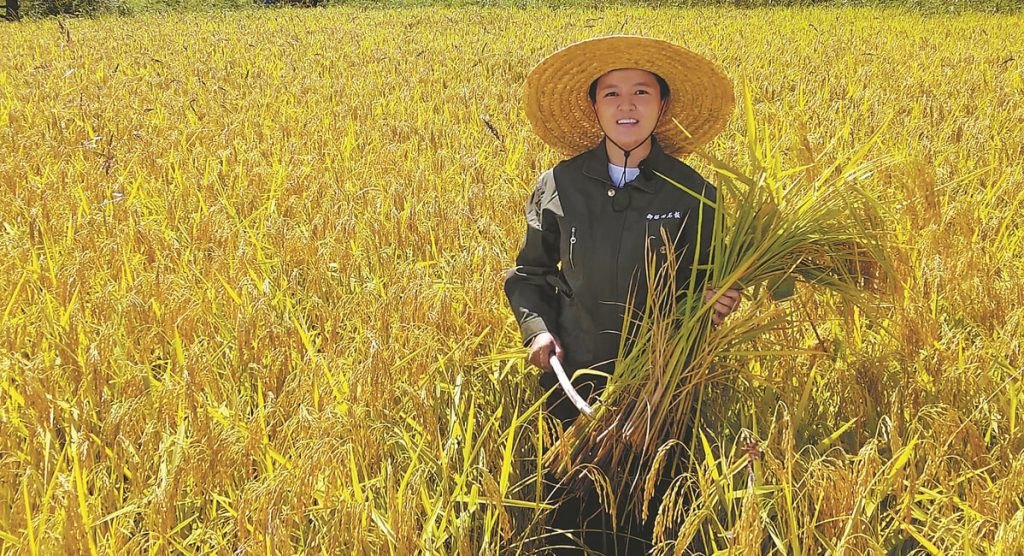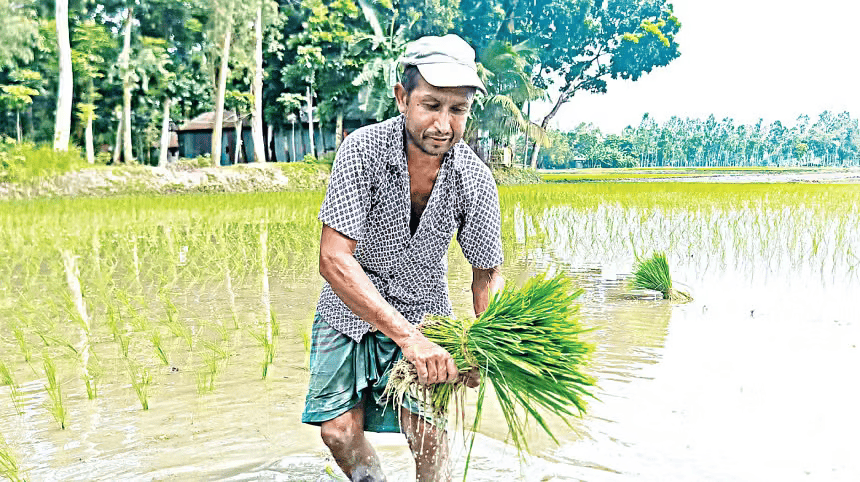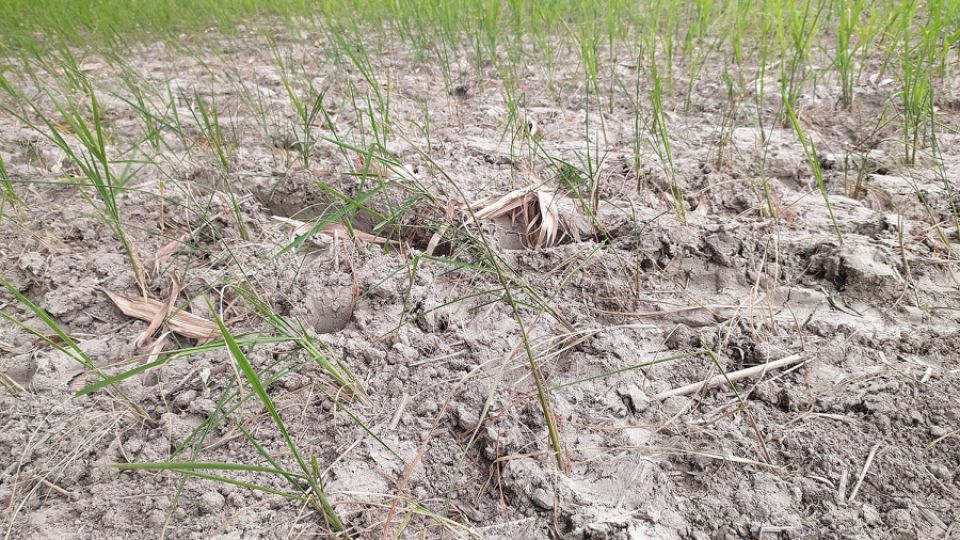Tags
Cooperative finds success with slate rice
Variety grown in rare fields invigorates village in Heilongjiang province.

Chen Yujia harvests slate rice in Shangguandi village in Ning’an city, Heilongjiang province. [Photo provided to China Daily]
In 2016, Chen Yujia left her position as a high school physical education teacher in Ning’an city, Heilongjiang province, and returned to her hometown to be a rice farmer.
The 35-year-old was born and raised in Shangguandi village in the city’s Bohai town. Nourished by volcanic soil, the area is known for its production of slate rice.
Chen said slate rice fields are as rare as giant pandas, and she came to realize the need to protect and make good use of them.
She now heads a rice cooperative that has gained popularity in the area. To safeguard villagers’ interests, she signed agreements with farmers, ensuring annual purchases at prices higher than market value and personally bearing the risks of overstocking.
Though Chen’s parents raised her in the countryside, they hoped she would pursue higher education rather than do labor-intensive farmwork like them, she said. She went on to become a high school physical education teacher.
During school holidays, she would accompany her mother to agricultural exhibitions, where they saw high-priced rice in exquisite packaging from southern provinces being sold.
At the time, her mother was participating in a rice cooperative she helped establish in 2008. She and her colleagues were relying on traditional sales methods, waiting for middlemen to buy rice in bulk from them. This proved unsuccessful, and villagers struggled to make ends meet.
Seeing the high-priced rice at the exhibitions gave Chen and her mother an idea. By taking advantage of the uniqueness and relative scarcity of slate rice and making the packaging more attractive, Chen believed they could better promote their rice and sell it at a higher price.
Despite the stability of her job at the high school, she resigned and returned to her hometown to work at the cooperative, ignoring her friends’ objections and emboldened by her mother’s support.
“I returned because for the cultivation and sale of rice, hands-on experience is necessary,” Chen said.
Facing unforeseen challenges in rice cultivation and skepticism from the community, her determination to sell the rice at a better price grew.
Chen said at the beginning, she thought farming wouldn’t be difficult for her, an agile physical education teacher. However, she soon learned that walking on a rice field is more difficult than running on a racetrack.
“The mud is so sticky that it’s hard to walk smoothly,” she said. “Moving through the field doesn’t give you the exhilaration of jogging on a track.”
She began conducting market research in supermarkets, going to shops to study various rice varieties, pricing and packaging.
“I needed to consider the market demand, what amount of rice do people generally buy, which rice is preferred by certain demographics, and so on,” she said.
To promote slate rice, Chen offered to cook it at exhibitions so customers could try it.
“Only if people taste it will they pay for the rice. Also, my mother and I tailor-made a set of red and green cotton jackets to attract attention,” she said. “Normally, I wear only black and white. Wearing such eye-catching clothes was a struggle for me.”
Chen also quickly learned that selling the rice was not as simple as she thought it would be. Besides redesigning the packaging, she also opened an online store and began livestreaming to promote her products.
“Ideas are great, but putting them into practice can be quite difficult. Sales are not easy. I thought conducting research, reading books and making videos would help sell the products easily, but reality poured cold water on my expectations,” she said.
“Villagers had doubts about my abilities. On days when I had no orders, I wondered whether I had made a mistake. However, there was no turning back.”
Despite her misgivings, she persisted through the challenging times, gradually gaining trust and securing orders.
Chen’s cooperative gained renown, attracting more than 150 families from Shangguandi and neighboring villages.
The slate rice cultivation area expanded from 3 hectares to 120. The annual revenue generated from each hectare has increased from around 75,000 yuan ($10,444) to about 150,000 yuan, providing incomes for over 500 villagers.
Meanwhile, projects such as land adoptions by citizens have boosted tourism, instilling more confidence in villagers.
“I want to create value. Now that villagers have seen positive changes, talking to them feels different. Their enthusiasm has given me great confidence,” Chen said.
https://www.chinadaily.com.cn/a/202402/01/WS65bad1cfa3104efcbdae9011.htmlPublished Date: February 1, 2024






